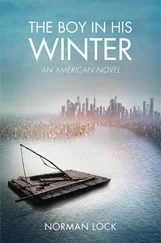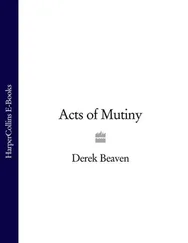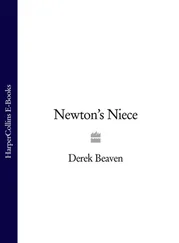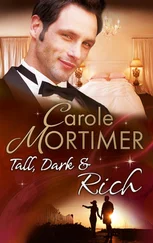Someone was working the Roneo. He craned his neck to see. At the same moment, the girl gave over cranking the handle, turned and stared back at him – not Cynthia but the freckly redhead from accounts, June Something-or-other. His spirits plummeted as he looked hastily away, shocked at the extent of his disappointment, at how much he’d anticipated seeing her again. Then another girl caught his eye, and he retreated, diagrams in hand.
They’d spoken several times, Cynthia and he. Once in the spring, she’d come with some files for Lionel Rae, and had stopped by Geoffrey’s piece of bench to look over his shoulder. He’d been examining photographic results, swirling iridescent images and beautiful sliced forms that could sometimes take on all kinds of impressions. They could almost stand as pictures in their own right. He’d got up in his white coat to explain them to her, though words had seemed only to mar a shared sense of wonder. Then he’d even taken her down to show her where the probe was, outlined its principles as simply as he could, chattered on at times too freely – at others with a formality that verged on the tongue-tied – about the semi-magical properties of silicon, and about his own scanning electron beam. It could penetrate, he’d said, more deeply into nature’s enigma than anything before it.
A flicker of a smile had crossed her face. But she’d seemed genuinely interested; and it was flattering, since she was so attractive. That was when he’d first felt the understanding between them, a meeting of minds. Most definitely, he wasn’t sexually in love with her. In fact he’d have liked to protect her from the sexual tide coming in, an intelligent girl who might all too easily be damaged. She was younger, and he was married. She had her own life, of which he could, and should, know nothing.
It scared him to feel quite so devastated at her absence from the typing room. He stuffed the papers into his jacket pocket. She scared him, even as she thrilled him with her sense of difference, of selfhood, the crisp, faintly provocative way she wore her clothes, the cut of her hair, the tightness of her skirt.
THERE WAS NO thaw overnight. More snow fell. On the next day, a Friday, the earth had another new beginning, without smutch or stain. Then a wind got up from the east that set ranks of silver-grey clouds streaming in the middle air. It plucked the traceries from stalks and wires, dislodged the frosting of empty boughs, and brought great swags of snow from shifting evergreens thudding down on to the white carpet below. Any wakeful creatures hoping to scavenge food it sent back to their burrows.
The roads were more perilous than ever. Driving off from his house, Geoffrey skidded most of the way down Cowper Road. The only visible patches of tarmac showed on the High Street, the long straight road which neatly bisected his home town along the valley floor. Attempts had been made to put down salt and grit. He watched the market people while he waited behind a van at the traffic lights. The fishmonger had shovelled up two huge sugary pyramids on the wide pavement in front of the old Town Hall. He was setting out his stock under the arches, wearing fingerless gloves and an Arsenal bobble-hat, and whistling at the favour of sub-zero temperatures. The packed fish lay incalculably cooled, head to tail in their propped-up boxes.
Few other people were on foot. A dark-coated City commuter was starting down King’s Road towards the station, his bowler resolute, his rolled umbrella held out to the side like a ski stick. The market boys by WH Smith’s were larking round their trailer with handfuls of snow. A woman pushed a pram in the direction of Woolworths.
The lights changed to green and Geoffrey’s wheels slipped as he accelerated behind the van. Then the old road bottlenecked between Victorian shopfronts and the fine eighteenth-century houses with discreet brass plates of solicitors and accountants. He nose-to-tailed it past the medieval church on the left and the modest cinema on the right.
Five ancient routes converge towards London through the chalk knuckles of the Chilterns. The small market town that was home to both Geoffrey and Alan was on the middle one of these, its fold the Roman Akeman Street. A canal and a mainline railway ran in addition, hidden by the tangled lanes yet squeezed to within almost touching distance of the road. Somehow, the valley accommodated a ruined castle, a ruined gasworks, an aerosol factory and a Tudor public school. Most of the houses were old and higgledy-piggledy, though there was nothing outrageously quaint, nor very ugly, nor very remarkable. Geoffrey had grown fiercely fond of the place. He’d imagined it would be a home for a family. He believed it still could be.
The cars in front of him crept past the Eagle and Child. Run-down timbered cottages marked the town’s end by Swing Gate Lane. Then the hedges after Bankmill were all but covered, and the road seemed one ruck in a stark white bedsheet, along which Geoffrey crawled for three interminable miles. When he turned off at Two Waters to cross the Grand Union, the canal appeared oddly to craze and steam in the shelter of its bridge.
There was another queue right into Hemel Hempstead new town and up through the housing estate. The hill was steep. On one side, the local boys had made a strip of ice and were taking turns to slide down; on the other, a stream of younger children were dragging toboggans up towards Jarman’s Field, their progress mostly faster than the cars. He turned off at the crest to cross the bridge over the motorway, but St Albans Abbey only came into view after another five-mile slog against the grain of the landscape. Built from the stone slabs of Watling Street, it marked the next Roman route around the capital.
But at Lidlock there was still no sign of Cynthia, even though he found pretexts enough to pass the typists’ room, to check post and reception, to roam the stores and the workshops. He gained no more than enquiring looks, and was left to deal with a sense of loss he hadn’t bargained for. It had been, he ruefully acknowledged, in the nature of an experiment.
More staff had made it into the lab: Bill Hollingworth, Royston Gaines, Millicent Throssel, the female metallurgist. Lance was there, of course. Geoffrey stood beside Rae’s empty desk looking out of the window at the white expanse between himself and the parked cars. He felt strangely old and set up for life. In his sports jacket and flannels, with his honest looks – the sandy hair just a little unruly, the blue eyes engaging, the smile a fraction too ready and disarming – he’d tried to pull this masculine world around him. He had slide-rule and praxis at work, his good wife at home. He drew a promising salary.
So he stared at the featureless white outside, as at a screen on which his past life could be projected. A village youth, he’d courted Merriam, from the prefabs. She’d caught the same bus to school. As it jolted towards Aylesbury Grammar, she’d seemed so perfect, two rows in front, half-obscured by the rail at the back of her seat. Her sleeve, her shoulder, the line of her neck, the clusters of her auburn hair – he’d been struck to the quick when she’d turned round to look at him.
One day, he’d encountered her, and there was nothing for it but to ask her out. They’d been to the Gaumont matinee, and for cycle rides together. They’d lain in the long grass at the edge of Lodge Hill and he’d kissed her romantically. So far, so good. But the lips of an unknown girl he kissed at a party game suddenly tasted far sweeter, and filled his sexual imagination to bursting for more than a week. He was flummoxed. Shortly afterwards, the illusion collapsed and he hadn’t loved Merriam at all.
A similar disenchantment happened a year later. He was left thinking he’d misunderstood the whole business, and this was exactly when his intellectual engagement had been caught by the inspired science master. Science was manly, and above all hectic fictions of his heart. He’d met Louisa while they were both students in London, and married her, on the basis that what he’d felt before was infatuation, not love at all. He loved Louisa.
Читать дальше












